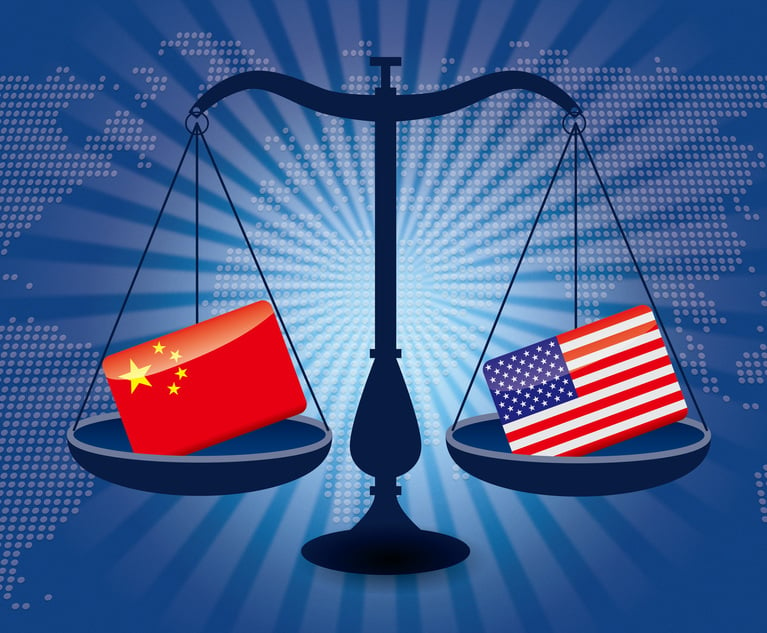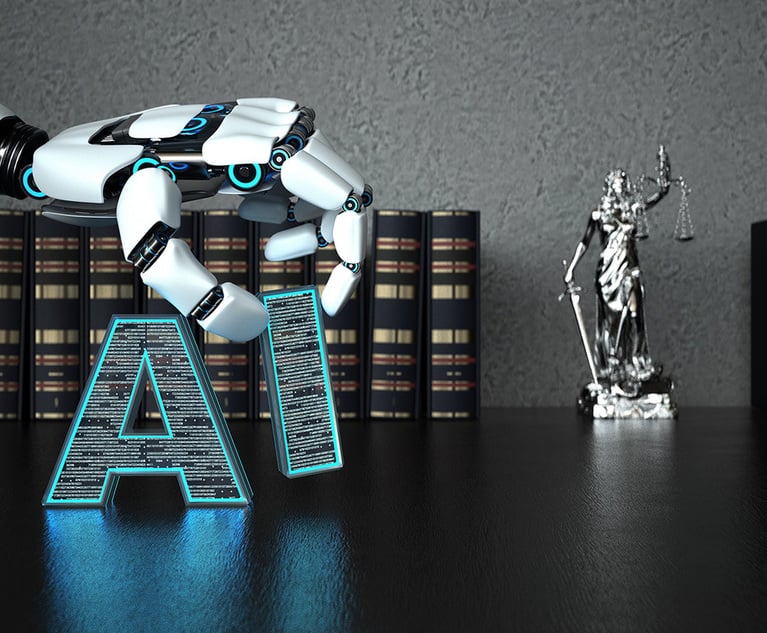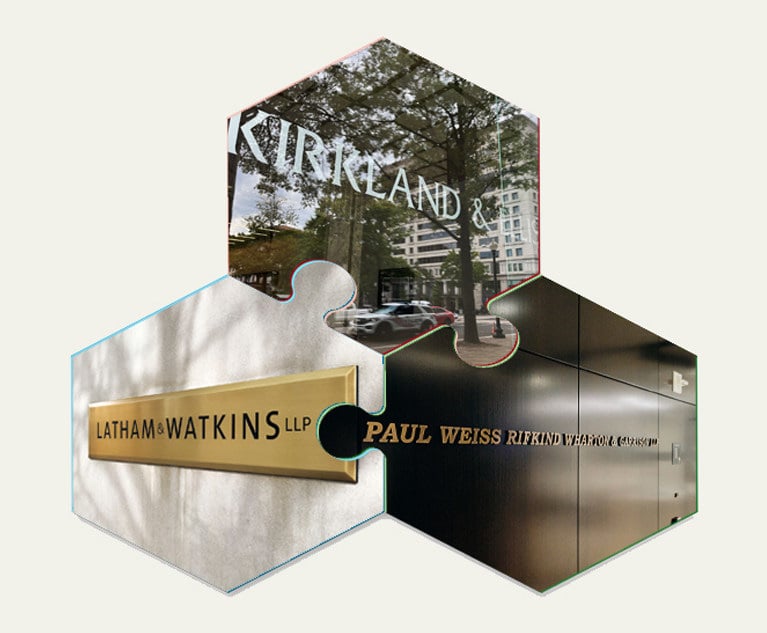Why Tomorrow's Lawyers Will Be Needed More Than Ever
Legal market analyst Jordan Furlong assesses how young lawyers need to adapt to survive in the 2030s and beyond.
April 17, 2019 at 01:16 AM
5 minute read
"Peace in our time"… "The Beatles have no future in showbusiness"… "There's no chance the iPhone is going to get any significant market share"…and so on.
Really, I don't know why anyone makes predictions about anything. A thousand unforeseen factors surface immediately you finish and shatter all your starting assumptions beyond repair. Only a glutton for punishment would actually make serious predictions on the record and in public. And so, naturally, here is my forecast for the future of legal careers.
In five or so years from now, the traditional legal market should be approaching both its zenith and its logical conclusion. Record-breaking profits for old 'boomer' partners as they burn up their law firms on their way out the door; the relentless disaggregation of legal work to lower-cost platforms, with ever-fewer associate roles for young lawyers; a metastasising crisis in the public legal system, coinciding with geopolitical upheaval in a post-Brexit, post-Trump world. So much for us to look forward to!
As much as this might seem like a first draft of a script for Marvel Comics' Avengers: Endgame, all this really represents is the culmination of trends spanning decades and a long overdue explosion of change in the legal market, against the backdrop of massive generational transition and technological chaos. The good news, and there is some, is that fresh opportunities for legal employment and value creation will start to flourish in this period, especially for lawyers with modern skills and diverse experience. Radically different law firm business models will start to emerge.
Fast forward 15 years and the picture gets brighter. There'll be a new international order, and while it might not necessarily be one you like, at least it will be stable. Governments will hire lawyers to redesign and implement a new public infrastructure in which basic legal services are mandated and provided by the state. Courts will handle mostly criminal and constitutional matters, while civil litigation will go to private arbitrators and online DR platforms. Family dissolution will be fast, cheap and run by bureaucrats. I'll leave you to decide if that's a good or a bad thing.
What will lawyers be doing? Some will be unique specialists, tracking down violations of bilateral personal information treaties or building online systems for auditing clients' compliance with carbon-trading laws. Others will serve regional enterprises from suburban mixed-use developments, or run home-based solo practices using deep knowledge of narrow subjects to draw a worldwide clientele. Others will programme and upgrade online consumer law solution engines or deal with more complex matters beyond the software's reach. And a hardy few will still bill by the hour for advocacy, judgement, counsel and complex legal advice.
I have very little to say about the legal world 25 years from now, other than that it will probably be helpful to specialise in constitutional, immigration, real estate or energy law. In a permanently hotter world beset by climate refugees, disappearing coastlines, forced population resettlement and the rapid development of non-carbon fuels, there should be no shortage of work for you.
Now, look: Am I utterly convinced that all my predictions will come to pass? Of course not. In case I hadn't made it clear at the outset, predictions are a mug's game, useful mostly for future amusement opportunities. But none of the factors behind these forecasts are imaginary or speculative – all you need do is look at the roads we're driving down today to see that these potential destinations are not outlandish possibilities.
More importantly, the point of my forecasts is to give today's and tomorrow's lawyers not just a glimpse of what they might be doing in the 2020s and 2030s, but to remind them that no matter how great or how terrible things turn out to be, the world will still need lawyers. It might not always like us, and it probably still won't fully appreciate us, but it's going to need us. And we need to be ready to meet those needs, because they're going to be different and more complex and more challenging than anything we've dealt with so far.
So, if you entered the law to become rich and influential, I'd suggest you consider another line of work, maybe hedge funds or Britain's Got Talent! But if you entered law because you genuinely want to make the world a better place, then I've got great news for you: the world wants to be a better place. But it will need help to get there. And it will need you to step up and provide it.
Jordan Furlong is an author, consultant, and legal market analyst. He is author of LOD's recent report: 'Through the legal looking glass'.
NOT FOR REPRINT
© 2025 ALM Global, LLC, All Rights Reserved. Request academic re-use from www.copyright.com. All other uses, submit a request to [email protected]. For more information visit Asset & Logo Licensing.
You Might Like
View All
As American Firms Retreat, Will Loyal UK Firms Regain Asia Market Share?

DeepSeek’s AI Power Move: Will Lawyers Be the Next to Adapt or Perish?
6 minute read
Now That the Trump Era Has Begun, Change Is Coming. For Big Law, Change Is Already Here
6 minute readTrending Stories
Who Got The Work
J. Brugh Lower of Gibbons has entered an appearance for industrial equipment supplier Devco Corporation in a pending trademark infringement lawsuit. The suit, accusing the defendant of selling knock-off Graco products, was filed Dec. 18 in New Jersey District Court by Rivkin Radler on behalf of Graco Inc. and Graco Minnesota. The case, assigned to U.S. District Judge Zahid N. Quraishi, is 3:24-cv-11294, Graco Inc. et al v. Devco Corporation.
Who Got The Work
Rebecca Maller-Stein and Kent A. Yalowitz of Arnold & Porter Kaye Scholer have entered their appearances for Hanaco Venture Capital and its executives, Lior Prosor and David Frankel, in a pending securities lawsuit. The action, filed on Dec. 24 in New York Southern District Court by Zell, Aron & Co. on behalf of Goldeneye Advisors, accuses the defendants of negligently and fraudulently managing the plaintiff's $1 million investment. The case, assigned to U.S. District Judge Vernon S. Broderick, is 1:24-cv-09918, Goldeneye Advisors, LLC v. Hanaco Venture Capital, Ltd. et al.
Who Got The Work
Attorneys from A&O Shearman has stepped in as defense counsel for Toronto-Dominion Bank and other defendants in a pending securities class action. The suit, filed Dec. 11 in New York Southern District Court by Bleichmar Fonti & Auld, accuses the defendants of concealing the bank's 'pervasive' deficiencies in regards to its compliance with the Bank Secrecy Act and the quality of its anti-money laundering controls. The case, assigned to U.S. District Judge Arun Subramanian, is 1:24-cv-09445, Gonzalez v. The Toronto-Dominion Bank et al.
Who Got The Work
Crown Castle International, a Pennsylvania company providing shared communications infrastructure, has turned to Luke D. Wolf of Gordon Rees Scully Mansukhani to fend off a pending breach-of-contract lawsuit. The court action, filed Nov. 25 in Michigan Eastern District Court by Hooper Hathaway PC on behalf of The Town Residences LLC, accuses Crown Castle of failing to transfer approximately $30,000 in utility payments from T-Mobile in breach of a roof-top lease and assignment agreement. The case, assigned to U.S. District Judge Susan K. Declercq, is 2:24-cv-13131, The Town Residences LLC v. T-Mobile US, Inc. et al.
Who Got The Work
Wilfred P. Coronato and Daniel M. Schwartz of McCarter & English have stepped in as defense counsel to Electrolux Home Products Inc. in a pending product liability lawsuit. The court action, filed Nov. 26 in New York Eastern District Court by Poulos Lopiccolo PC and Nagel Rice LLP on behalf of David Stern, alleges that the defendant's refrigerators’ drawers and shelving repeatedly break and fall apart within months after purchase. The case, assigned to U.S. District Judge Joan M. Azrack, is 2:24-cv-08204, Stern v. Electrolux Home Products, Inc.
Featured Firms
Law Offices of Gary Martin Hays & Associates, P.C.
(470) 294-1674
Law Offices of Mark E. Salomone
(857) 444-6468
Smith & Hassler
(713) 739-1250










